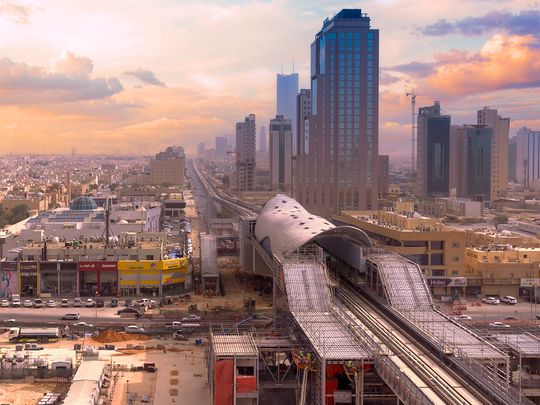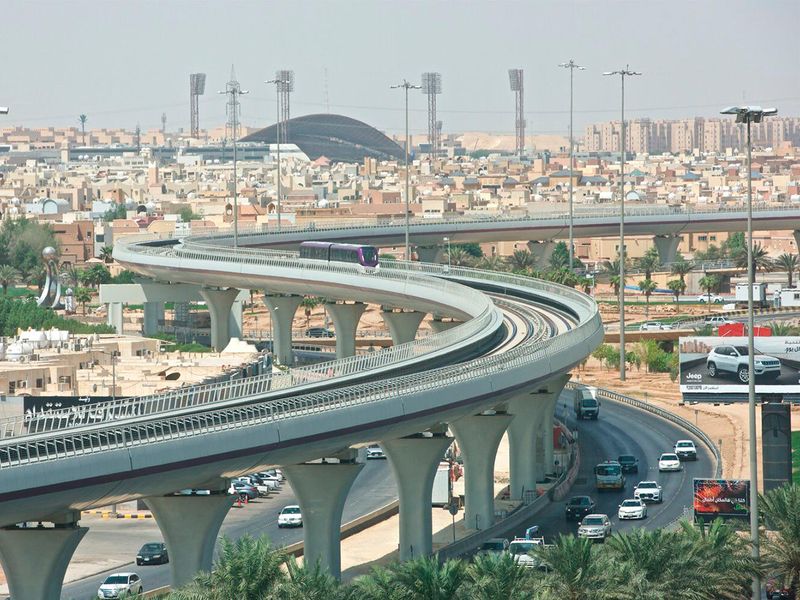
Dubai: Having ‘money in the bank’ to tap into will be the biggest boost for construction companies and project managers in Saudi Arabia, as the Gulf’s biggest economy continues its massive build-up of futuristic destinations and all the elements within it.
“Saudi PIF (Public Investment Fund) backed projects needing to have the funds readily available really has helped give confidence to the market,” said Raouf S. Ghali, CEO at Hill International, one of the world’s biggest project management consultancies.
“What the money in the bank prove is that these are not just announcements, but people can work on them and they will be getting paid for that. The construction sector is being judged by the Saudi higher authorities to deliver the projects – and there’s no excuse not to deliver. Because the money required for the project capex is very much available.”
The UAE, Saudi Arabia and Qatar have been driving construction and project activity through the recent past. If in the UAE, offplan projects and infrastructure works dominate, Saudi Arabia is witness to once-in-a-generation developments, whether that’s NEOM region, the AlUla and Red Sea Global projects. As of now, a lot has happened on the ground at each of these projects – and there’s more coming.

Projects in the UAE – the infrastructure ones with the (Etihad) rail and transit – are enough to sustain the construction industry for the next 35 years.
Which can easily drive construction activity for a good decade and over, according to Ghali. “Some of the Saudi projects are going to tender, some have already been built such as the airport in Red Sea,” he added. “But it’s still very early stages on lots of them.
“The one thing no one has to worry about is getting paid on work that’s been done.”
It helps that PIF, which is the Saudi wealth fund, is also at the helm of most of these ambitious ‘giga’-ventures.

Worry over construction costs
But concerns keep getting expressed about cost inflation biting into the construction sector, though nowhere near the levels seen in the immediate post-Covid years of 2021-22. The latest skirmishes of the US and UK against the Houthis in Yemen over Red Sea shipping movements are adding another layer of uncertainty.
In Saudi Arabia, senior government figures have spoken about some of the projects taking longer to deliver.
“Construction costs are still competitive – and there is a final price that people are willing to pay what’s being built, whether in the UAE or Saudi Arabia,” said Ghali. “We are still seeing normal levels of building supplies right now.
“Projects in the UAE – the infrastructure ones with the (Etihad) rail and transit – are enough to sustain the construction industry for the next 35 years.
“We are also seeing Qatar come to market, with new appetite for construction. Some of the potential causeways are mega-projects that can take 10-15 years to build. Some of the extensions on the rail network is another they want to do.
“The GCC in general should have a good run for the next few years.” (As Ghali says, Qatar is not slowing down on its next round of scripting its future needs. The build up towards the 2022 FIFA World Cup in Doha was more of a taster.)
Add to that the real estate ones
UAE real estate developers will bring their own action to the construction sector. In January, more offplan projects have been added to the fray, and Majid Al Futtaim development has just awarded a Dh3 billion worth of contracts to build mansions at its Tilal Al Ghaf community in Dubai.
“The first-half 2024 will see no drop off in real estate related tendering activity in the UAE,” said an official at a contracting firm. “Developers who want to be taken seriously cannot afford any delays to creep in to get projects started. If they do, they will find that getting the right contractors and suppliers will become even more difficult”
Not to mention, any further inflation in construction costs…








